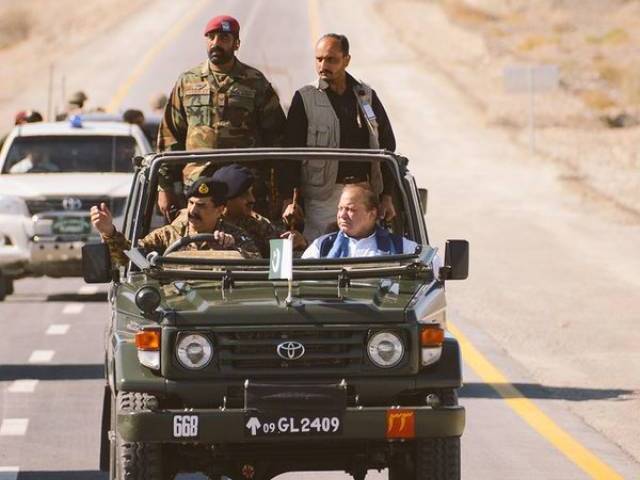The media is awash with praise for the decision of the Chief of Army Staff General Raheel Sharif to retire in time, come November. If not for Pakistan, it would not have been news. In fact, in any other democracy, the COAS’s tenure does not matter unless he becomes controversial. The military has been a crucial element in the politics of Pakistan. The generals in the General Head Quarter Rawalpindi have replaced three civilian governments in the past. All of them ruled a decade respectively. All of them had come to rescue the country from the corrupt practices the politicians had fallen to putting the nation into perils of social and economic destruction. None of the generals was fortunate to push the country into a development mode or, at least, to cleanse it of the so-called corruption they had come to treat. By any means, the country is still reeling from General Ziaul Haq’s wages of sin. Nawaz Sharif, the incumbent prime minister, had been the victim of the coup by General Musharraf in 1999. After almost ten years, when he came into power again, Nawaz chose to tread the army path with care and sensitivity. The mistake he made during his second stint in power, of picking the chief for the Army out of promotion list, he opted not to repeat. Raheel Sharif was chosen on merit.
After coming to power in 2013, Nawaz Sharif’s government had rolled up its sleeves to crucify General Musharraf for his coup in 2007, when he incarcerated judges and held the Constitution in abeyance. One still wonders as to why Nawaz Sharif did not start picking at the general with the 1999 coup. The government was staring the army in the eye, giving an impression that the time has arrived to take the challenges of streamlining the civil-military relations in the context of a democratic dispensation. It was decided that the military should be under the guidance of the civil government. Khawaja Asif and Khawaja Saad Rafique, started putting things in context. They directed every punch at the army and demanded accountability of the institution and of the generals who had shown Bonapartism. Then came the sit-ins. It altered the power structure of the country while the Khawajas and the rest of Nawaz's clan were soon eating the dust of their words.
The sit-in could not remove Nawaz Sharif as was the original demand of Imran Khan. The umpire raised no finger. Raheel Sharif did mediate between the warring parties, but his shadows were too persimmons to be felt as the fundamental factor in giving strength to the drama that kept the capital hostage for four months.
The sit-in ended with the Army Public School (APS) massacre that killed more than 130 children and the administrative staff of the school.
By now, Nawaz Sharif had lost the spark. He was more under the control of the boys than the other way round. The Khawajas had fallen silent. The roaring claim about democracy getting ahead without the army shield died down. The mantra that the civil-military relation was on the ‘same-page,' began making rounds.
The APS incident pulled many veneers off the country’s face. Suddenly everybody was feeling vulnerable. The seer had come close to the boys. It was no ordinary school it was the Army Public School that was massacred. The realization that enough is enough had finally dawned.
The war on terror began in full mode. The civilians took the task to fill in the gaps, while the military took on the terrorists in the tribal areas where the war had already started in June 2014. The National Action Plan was drawn up. Apex Committees were formed at every provincial level. The war on terrorism resembled an octopus, charged with an aim to root out every element of terrorism from Pakistan. However, like every good thing this resolution too could not find the right mix of passion and selflessness.
One year down the road, NAP has yet to find its feet while the army is going way too far through Rangers and other paramilitary troops to keep Karachi and Balochistan under peace. The lethargy showed by the government in taking on the elements that fuel terrorism had raised the speculation that the army was going to take over the reign until the news came in of COAS’s retirement.
The air may have got clear with the announcement; however, the government’s attitude leaves many questions unanswered.
Madrassas in Pakistan are at the centre of anything that goes in the name of terrorism or religious bigotry that spews terror. We have a spectre called Maulana Abdul Aziz who glorifies terror whether by showing his allegiance to the ISIS or by issuing the warning to the state of facing dire consequences if Sharia is not established in the country. He goes on sending threats. He is implicated in terror-related activities, but the government considers napping over this case a better option than putting him behind the bar for spreading hate and malign in the name of religion. Under the NAP, he is the right candidate to be in jail.
It might seem the general is leaving many unfinished businesses behind. However, if not for Pakistan, his departure would have been stalled to keep the momentum on the war on terror intact. But the general must go to keep democracy out of danger.






